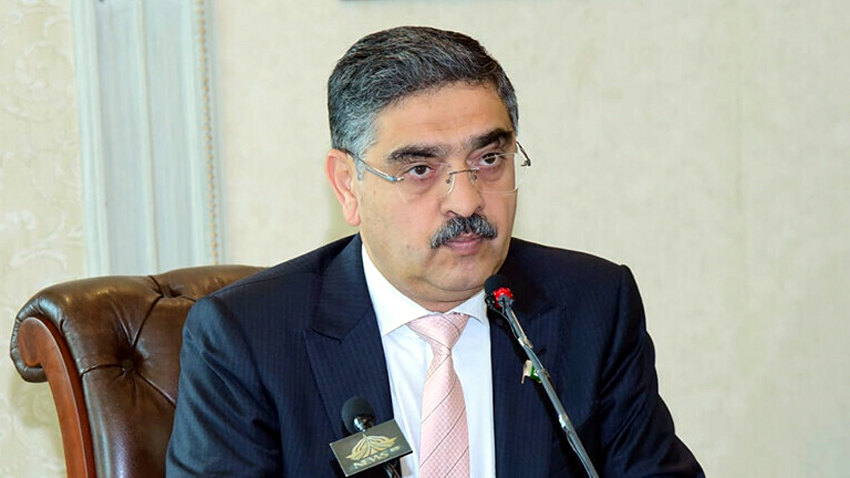Caretaker Prime Minister Anwaar-ul-Haq Kakar has said that brain drain does not mean failure for the country as he dismissed the notion that people leaving Pakistan was a loss.
“Brain drain can become a brain asset [in future] and this is a sanguine and positive way to perceive it,” the prime minister said while speaking in an interactive session titled ‘Breakfast with the Prime Minister’.
In a recent report by the Bureau of Emigration and Overseas Employment, more than 10 million Pakistani citizens have bid adieu to the country.
Pakistan is a civilisation of diversified creative potential which makes it “rich” in a true sense,” said the caretaker premier, adding that the 240 million population with a huge youth bulge under the age of 25 adds value to human capital.
He, however, pointed out that it was of utmost crucial to provide skill sets to youth through targeted training programmes and warned that non-utilisation of their energy could lead to detrimental consequences.
PM Kakar said one of the priorities of the caretaker government was to focus on a programme, which would train one million nurses in one decade.
He added that the government was exploring partnerships with international conglomerates including Siemens, Germany for the development of skills in different areas.
Speaking about the interim government, Kakar said that the ruling power with its good governance and reformative approach would leave a legacy on the domestic front.
He added that the caretaker government is credited for tackling tough challenges in areas including the economy, privatisation, and connectivity.
The prime minister spoke about his vision of the prospects for a better Pakistan, terming “skilled human capital as the answer to several challenges”.
The prime minister said the government was fast-tracking the privatisation of state-owned enterprises (SOEs) and related entities, with Pakistan International Airlines (PIA) on priority in the list.
In this regard, he said, some tangible results were expected to be achieved by mid-January.
On attracting foreign investment, he said the Special Investment Facilitation Council (SIFC) was providing an opportunity for ease of business, adding that the country expected good news in weeks about foreign investment of billions of dollars in areas of agriculture, information technology and mining.
He expressed confidence that SIFC, a platform with representatives from civil and military domains, would ensure the continuity of projects despite the change of governments. He also endorsed the idea of including members of the business community to expand its potential.
He said EXIM (Export-Import) Bank was working on providing financial services to Pakistan, which would help the local businessmen and traders to carry out financial transactions abroad.
Highlighting connectivity as a crucial area, he said the Trans-Afghan railway would connect Uzbekistan with Pakistan. Also, the work on the improvement of Quetta-Taftan rail network is underway, he said.—APP










